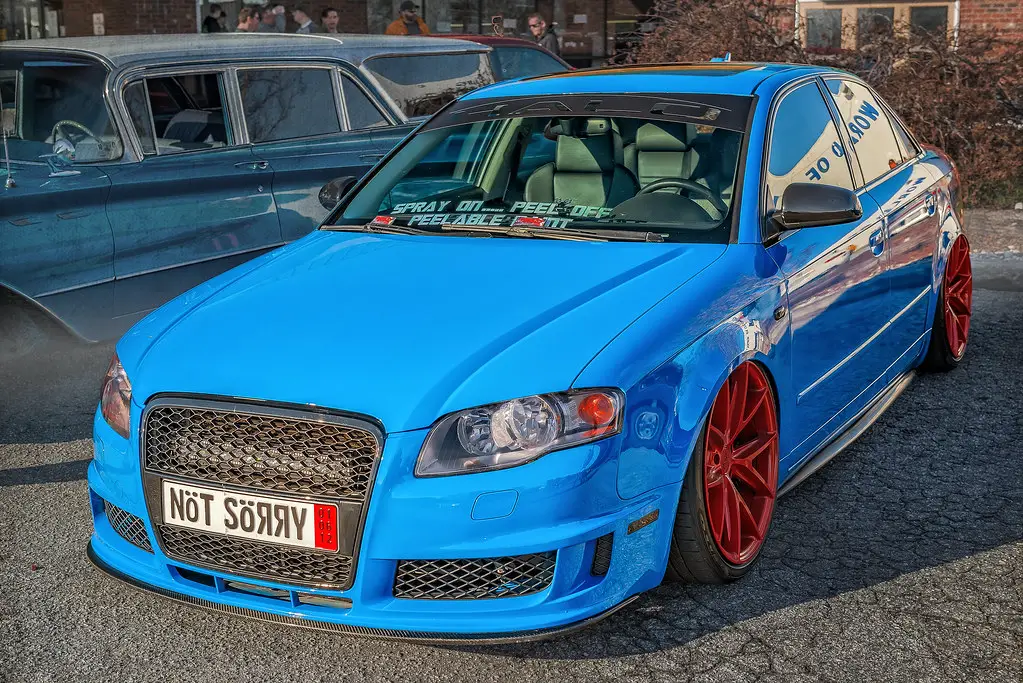When it comes to giving your car a fresh look or protecting its paintwork, car wrapping offers a fantastic solution. But before you dive into this world of vehicular transformation, it’s crucial to understand the basics. From costs to types and everything in between, this guide will walk you through the essentials of car wrapping.
The Cost of Car Wrapping: What to Expect
The question on everyone’s mind when it comes to car wrapping is, “How much does it cost to wrap a car?” Well, the answer isn’t set in stone, as various factors influence the final price tag. Whether you’re planning to DIY or seeking professional help, here’s a breakdown of potential costs:
1. DIY Car Wrapping: If you’re up for a hands-on experience, wrapping your car yourself can save you some money. The expenses involved include tools and equipment ($100-$500) and vinyl ($200-$700, depending on your vehicle’s size). So, on average, you’re looking at a range of $500 to $1,000.
2. Professional Car Wrapping: For those who prefer a polished finish, professional services are the way to go. Professional wrapping involves costs for vinyl ($300-$1,500) and labor rates ($1,000-$2,500+). This puts the total cost typically between $2,000 and $4,000 for an average-sized car in the US.
Remember, these estimates come with some assumptions. Car sizes, shapes, and vinyl quality can all impact the final cost. Additionally, professional work often comes with warranties, which can be invaluable down the road.
Factors Influencing Cost
Several factors influence the cost of car wrapping, ensuring each project is unique:
1. Type of Vinyl Wrap: Vinyl wraps come in different finishes and qualities, impacting the price. Standard colors like matte, gloss, and satin are affordable. Metallic, pearlescent, carbon fiber, textured, and reflective wraps come at varying price points, reflecting their unique appearances.
2. Vehicle Design Complexity: The design and shape of your vehicle matter. Cars with simple, flat surfaces are easier and cheaper to wrap, while sports cars or luxury vehicles with intricate designs and curves may cost more due to increased labor and precision.
3. Vehicle Size: Larger vehicles require more material, increasing costs. Compact cars might need around 15-17 meters of vinyl, mid-sized cars around 18-20 meters, and full-sized cars or small SUVs around 20-23 meters.
4. Full vs. Partial Wraps: Full wraps cover the entire vehicle and are more expensive than partial wraps, which only cover specific parts like the roof, hood, or trunk. The extent of the wrap directly affects the cost.
5. Labor and Installation: The experience of professionals matters. Skilled technicians might charge more, but their expertise ensures a flawless finish. Labor costs can vary based on location, demand, and reputation.
6. Additional Services: Prepping the vehicle before wrapping is essential and might involve cleaning and minor repairs. Some shops offer post-wrap treatments like ceramic coatings, extending the wrap’s life and durability.
7. Geographic Location: Prices can vary based on location, with metropolitan areas usually charging more than smaller towns.
8. Duration of the Wrap: Temporary wraps for events might use different materials than long-term wraps, affecting costs.
In conclusion, car wrapping is a versatile option for changing your vehicle’s appearance. While costs vary due to multiple factors, understanding these influences can help you make an informed decision. Whether you’re after a simple color change or a unique design, there’s a car wrap option that suits your preference and budget. Always remember that while price matters, quality and expertise are paramount. Investing in a high-quality wrap can save money on potential repairs or replacements in the long run.

